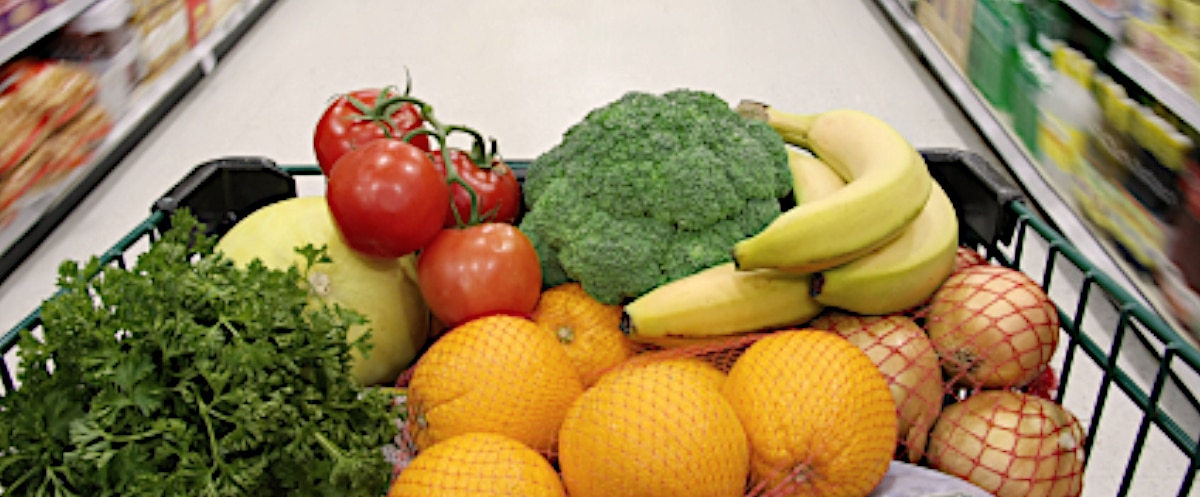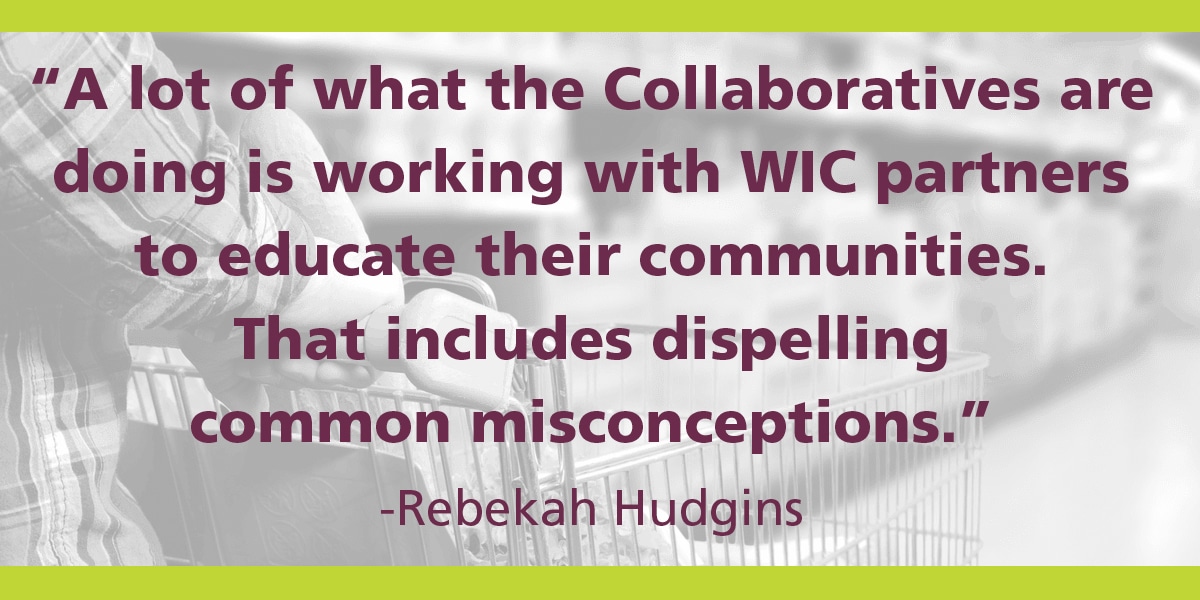WIC Matters Works to Get Healthy Foods on Georgia Families’ Tables
Print This Post
When it comes to utilizing the benefits of WIC, some Georgia families literally are leaving food on the table.
According to the United States Department of Agriculture, the total participation in the Special Nutrition Program for Women, Infants and Children (WIC) in Georgia has been on a steady decline over the past several years. Total participants in 2018 was 217,694. That’s 46,604 fewer participants than in 2015. The greatest decline has been among children ages 1 – 5 from 195,568 in 2015 to 154,439 in 2018. And the numbers have continued to decline. While the overall number of births each year and the child poverty rate have declined slightly, these do not explain the steady decline in WIC participation.
This means supplemental nutritional foods, as well as important health and community supports, are not getting into the hands of those who need it most—low-income, nutritionally at-risk pregnant and breast-feeding women, and children birth to 5 years old.
Addressing the issue is the Georgia Family Connection Partnership (GaFCP) WIC Matters Cohort, a group of nine Georgia Family Connection Collaboratives working together with WIC to help ensure that all eligible women are informed about, enroll in, and actively use the program’s valuable resources.
Three of the nine Collaboratives—Butts, Lamar and Meriwether—are also part of GaFCP’s Low Birthweight Prevention Cohort, and Fulton and Emanuel also belong to the Early Childhood and Health Education Cohort, so their participation in WIC Matters was a good fit, according to Rebekah Hudgins, a research and evaluation consultant for GaFCP. The remaining Collaboratives participating in the WIC Matters Cohort are from Early, Liberty, Lowndes and Rockdale counties.
The goal of WIC Matters, partially funded by the Arthur M. Blank Family Foundation, DFCS Prevention and Community Support Section, is to provide additional assistance to WIC in reaching out to eligible families and help ensure that they have the supports they need to enroll and actively participate in the program. State partners include the DPH SHAPE Initiative, Georgia Organics, Atlanta Community Food Bank, Community Food Bank Association, Voices, and Wholesome Wave, among others.

At the top of the list of challenges is a general misunderstanding about the program. “A lot of what the Collaboratives are doing is working with WIC partners to educate their communities,” Hudgins said. “That includes dispelling common misconceptions. For example, families mistakenly think they are not eligible for WIC if they’re on SNAP (Supplemental Nutrition Assistance Program), assume their income is too high to receive WIC, or don’t know that pregnant women and children up to age 5 are also eligible.”
Another hurdle is that the eligibility and certification processes may be perceived as time consuming and confusing. “If you don’t know what you need to do to be on WIC, it could seem like too much trouble or may take up too much time,” said Hudgins. “But a lot of people don’t know that some things, like receiving the nutrition certification, can be done online.”
Understanding what prevents eligible recipients from becoming WIC participants is instrumental in rectifying those issues, which can range from alleviating a fear to changing a system.
“There’s concern within the immigrant population to sign up for a government program,” Hudgins said. “We’ve heard that from several focus groups and we want to address the misconception that WIC is only for U.S. citizens.”
Focus groups also have revealed that the use of paper vouchers at grocery stores can be demeaning for the consumer, as well as confusing to the store associate, which Hudgins said will be rectified when the state converts to electronic cards that look and work more like a credit card.
Equally important as increasing enrollment is encouraging participation. “Occasionally, we’ve seen people enroll and then never actually pick up their vouchers,” Hudgins said.
For active participants, the hope is to increase redemption of vouchers specifically earmarked for fruits and vegetables, and making those foods more readily accessible. This could include increasing the frequency and locations of farmer’s markets, hosting cooking demonstrations with recipes that highlight WIC-eligible foods, and offering transportation vouchers so families can get to markets.
Hudgins also emphasized the importance of shopper education, particularly for expectant mothers. “Pregnancy nutrition is a critical factor in reducing low birthweight and therefore infant mortality,” she said. “A healthy woman has a healthy pregnancy that results in a healthy birth. That’s a vital change we want to see. Then, of course, improving child health overall has numerous benefits. It improves school readiness, decreases health care costs, reduces costs for the family when parents don’t have to take off work for a sick child, you can go on and on.”
Each Collaborative will look at the unique circumstances in their communities to create solutions specific to those needs and their population. The end game, however, is the same. With research underlying the importance of WIC in improving access to healthy food and improved health, Hudgins is confident that the WIC Matters activities will be far reaching.
“We expect direct services to be supported by local system change efforts and anticipate that local successes will inform state-level systems, increasing access to and consumption of healthy foods across Georgia,” said Hudgins. “We believe the Collaboratives’ activities have a real chance of influencing women to enroll in WIC and utilize vouchers, specifically those for fruit and vegetables.”
Contact:
Bill Valladares
GaFCP Communications Director
404-739-0043
william@gafcp.org
Follow us on Twitter: @gafcpnews
Connect with us on Facebook.
Georgia Family Connection Partnership (GaFCP) is a public-private partnership created by the State of Georgia and investors from the private sector to assist communities in addressing the serious challenges facing children and families. GaFCP also serves as a resource to state agencies across Georgia that work to improve the conditions of children and families. Georgia KIDS COUNT provides policymakers and citizens with current data they need to make informed decisions regarding priorities, services, and resources that impact Georgia’s children, youth, families, and communities.
